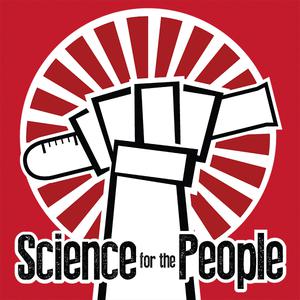
Science for the People
Rachelle Saunders, Bethany Brookshire, and Carolyn Wilke
Science in Context
- 1 hour#642 The Last Episode
Join the team of Science for the People for one last episode, where we interview... ourselves. We talk about our time as Skeptically Speaking and Science for the People, the rebranding, our favourite episodes, how the podcast has changed us, and what it's been like to be a science podcast from 2009 to 2023.
To our listeners: thank you all for sticking with us all these years, for supporting us, and most importantly for listening. We hope you'll continue to ask questions, to support science, and to think critically about the world around you. It's been an honour and a pleasure to have been Science for the People.
Updated to add: We discovered after publishing this episode that our email inbox had squirrelled away some amazing feedback from you in a strange place. When we found it we wanted to include a few more of your messages, so we've recut the episode to include them. If you haven't listened yet and you downloaded before 3 January 2024, please redownload to get the most up to date file!
Episode Mentions and other Shout Outs:
- Marion Kilgour's first appearance, as a guest talking about supermarket science: #4 Science of Love
- Marion's first guest hosting episode: #397 Risk Management
- Rachelle Saunders' first guest hosting episode: #119 Mistakes Were Made
- Bethany's first appearance as a guest: #100 Semen Science
- Bethany's first episode as a host: #362 Roadkill
- The episode that changed Bethany's mind: #310 Circumcision
- Carolyn Wilke's first episode as a host: #553 Scan All Fishes
- The one with Adam Savage: #25 Surprise Guest Adam Savage!
- The one with Randall Munroe: #27 Randall Munroe of XKCD
- The ones with Mary Roach:
- The ones with Ed Yong:
- The one with Dan Savage: #361 Too Hot To Handle
- The one with Noam Chomsky: #222 The Evolution of Language
- Carolyn's favourites:
- Bethany's favourite: #415 Weapons of Math Destruction
- Rachelle's favourites:
- Marion's favourites:
- Another shout out favourite from Rachelle: #577 Vaccine Moonshot
- More favourites from Bethany:
- Ryan's favourites:
- K.O.'s favourites:
- Betsy Ladyzhets and The Sick Times newsletter about Long Covid
- Ed Yong's reporting archive at The Atlantic where you can find his Long Covid stories
- The one with Andy Weir: #312 Impossible Space
- The one with Roberto Trotta: #293 The Edge of the Sky
- In Our Time with Melvyn Bragg
- Quirks & Quarks with Bob McDonald
- On Being with Krista Tippett
- The one about rebranding to Science for the People: #234 Science for the People
- The new Science for the People organisation we are not affiliated with and often get confused with
- Bethany's book Pests: How Humans Create Animal Villains"
- Bethany's website
- Voxtopica
- K.O. at Particulate Media
- Carolyn's website
- Ryan's game Catlandia
31 December 2023, 4:00 am - 1 hour#641 The Last Nerd Gift Guide
For the last time, Bethany and Rachelle skip gleefully across the world wide web, plucking nerdy objects out of obscurity to shine a spotlight on in hopes a few of these fascinating, delightful things find their way into the right kind of geeky forever-home. Maybe there's someone in your life one of these things would be perfect for, and we've just solved your holiday gift-buying dilemma! Maybe there's something in this list you fall in love with and pass along as ideas to people looking to buy gifts for you. Or maybe, just maybe, you decide it's time to get yourself a little something special. Because it's also ok to give ourselves a little delight now and then.
So grab a cup of tea, coffee, hot cocoa, cider, or other cosy holiday beverage and pull up our companion gift guide blog post so you can follow along with this last instalment of one of our favourite traditions here at Science for the People.
16 December 2023, 4:00 am - 1 hour#640 The Last Science Book Club
For the last time, Joanne Manaster and John Dupuis talk us through their favourite science reads from the last year, and add a little "time travel" seasoning in to keep things interesting, harkening back to old favs as well as talking about the best of the best from 2023.
As always, we've got our companion blog post ready with the full book list, including links to Amazon where you can find more information. Happy reading!
7 December 2023, 4:00 am - 1 hour#639 The One About Periods
Period. Menstruation. For something that roughly half the human population does, we sure don't talk about it much. But it's a fascinating biological phenomenon with a really interesting history, and the potential for a better future. We're talking with anthropologist Kate Clancy about her book Period: The Real Story of Menstruation.
20 November 2023, 4:00 am - 1 hour#638 Do you feel love? What about ecstasy?
If you're plugged in to science news (and you, our listeners, definitely are) then you know that psychedelics like ketamine and LSD are having a moment in therapy. But what about Ecstasy (MDMA)? What makes it different, and what could it do? This week we talk with Rachel Nuwer about her new book I Feel Love: MDMA and the Quest for Connection in a Fractured World.
7 November 2023, 4:00 am - 1 hour#637 A special announcement
In the beginning, way, way back in 2008, this podcast was just a bunch of Canadians wanting to talk about science and skepticism. Nearly 15 years later, we've spread out all over the globe, spoken to famous writers and scientists the world over, and satisfied so many of our curiosities! We've talked about the things we want to talk about. Now, it's time for someone else to step into our shoes.
6 November 2023, 4:00 am - 1 hour#636 Life on an unruly planet
We might say climate change is coming for us. But really, it's here. Fires are worse in hotter, drier conditions. Hurricanes are powered up supersoaking storms. Even tides are now rising into the streets and the beautiful oceanfront property we always wanted isn't looking so good. It's easy to feel despair, because no one individual thing will solve this problem. But where individuals will collapse, communities can build. This week we're talking with Madeline Ostrander about her book, At Home on an Unruly Planet: Finding refuge on a changed earth.
24 October 2023, 4:00 am - 1 hour#635 Crossings: How Road Ecology Is Shaping the Future of Our Planet
In the book Crossings: How Road Ecology Is Shaping the Future of Our Planet, journalist Ben Goldfarb details how roads have transformed our world. On this week’s show, Ben shares insights from his reporting on the science of studying how roads interact with animals and ecosystems. He recounts tales of tallying roadkill, scooping up stranded frogs, and visiting the roadkill capital of the world. Along with discussing the problems wrought by roads, Ben shares how efforts to help animals, such as wildlife crossings, have fared. And we talk about what roads reveal about people and our societies.
9 October 2023, 4:00 am - 1 hour#634 Back to the future
We all know that climate change is coming for us. It's already here. But it's really, really hard to change people's actions, especially when those actions don't benefit the here and now, but matter most for the future. They require long views of time, the ability to not just imagine, but to care about people in the future. Why don't we do that now, and how do we get there? We're talking with Richard Fisher, author of The Long View: Why We Need to Transform How the World Sees Time.
25 September 2023, 4:00 am - 1 hour#633 An Ice History
Ice is one of those invisible little gears of the modern, westernized world. We don't notice it when we have it, and as soon as we can't get it we find ourselves desperate to get it back. It wasn't always like this: ice started as a luxury of more northern climates, and the story of how it became more ubiquitous -- including in southern climates where natural ice is rare to non-existant -- is a fascinating one. We speak to writer and author Amy Brady about her new book "Ice: From Mixed Drinks to Skating Rinks - a Cool History of a Hot Commodity" and learn about the origins of our modern obsession with and dependency on ice.
14 September 2023, 4:00 am - 1 hour#632 We are what we eat
You are what you eat, right? Well then, who were the ancient Romans, and who were the people they colonized? And who are we? And why do we eat so much chicken? This week we're sitting down with Silvia Valenzuela Lamas to talk about how Roman colonization changed both the animals people raised and how people ate them. We're also talking with Richard Thomas about chickens, and how our taste for it may be one of the most enduring things we leave behind.
Links:
Richard Thomas: The Broiler Chicken as a signal of a human reconfigured biosphere.
Silvia Valenzuela-Lamas: Systems change: Investigating climatic and environmental impacts on livestock production in lowland Italy between the Bronze Age and Late Antiquity (c. 1700 BC – AD 700)
28 August 2023, 4:00 am - More Episodes? Get the App
Your feedback is valuable to us. Should you encounter any bugs, glitches, lack of functionality or other problems, please email us on [email protected] or join Moon.FM Telegram Group where you can talk directly to the dev team who are happy to answer any queries.
 Radiolab
Radiolab
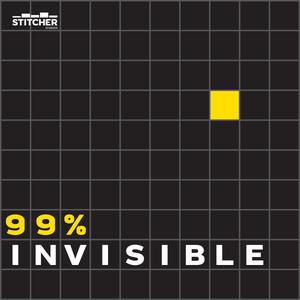 99% Invisible
99% Invisible
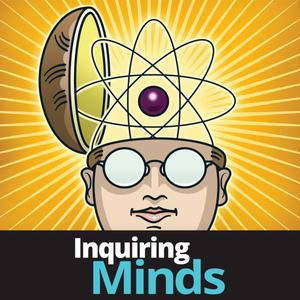 Inquiring Minds
Inquiring Minds
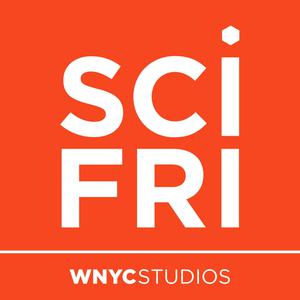 Science Friday
Science Friday
 Big Picture Science
Big Picture Science
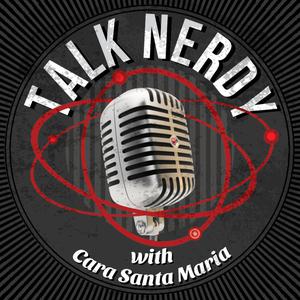 Talk Nerdy with Cara Santa Maria
Talk Nerdy with Cara Santa Maria